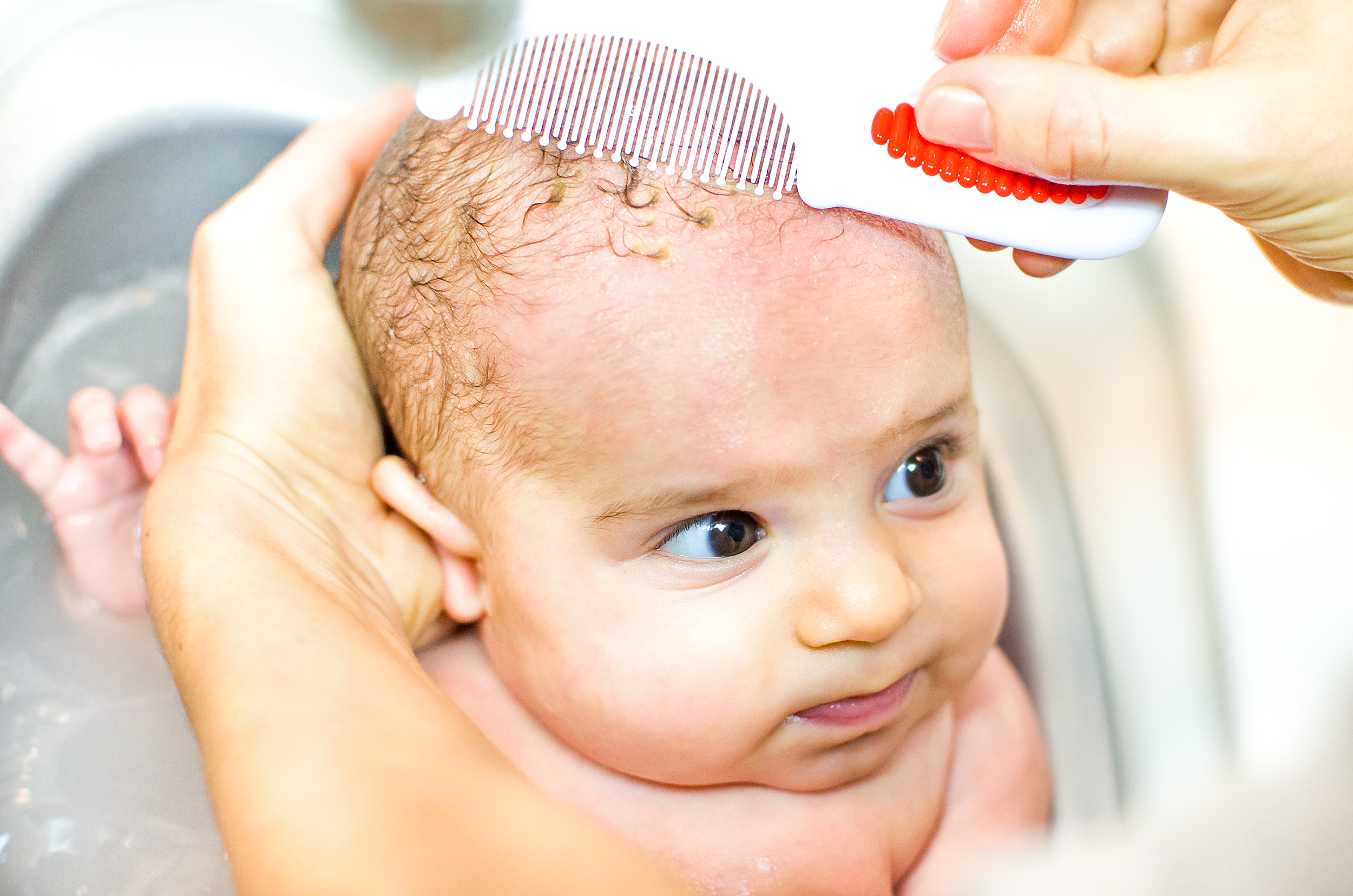-

Couple doing vasectomy reversal research.
Are You Having Second Thoughts?
Sometimes, men have a vasectomy, thinking they don’t want any more children, but then have second thoughts. About 300,000 men in the United States have vasectomies each year, and somewhere between three and six percent of those men later decide to reverse those vasectomies. In the past, this was a long shot. Today, vasectomy reversal is safe and effective. But is it the right option for you? Here are some factors to consider when making the decision.
Conception is Not Guaranteed After a Reversal
Vasectomy reversals are much more successful than they used to be, but no procedure is 100 percent perfect. Sometimes, it takes up to 12 months for a stable semen analysis test, and sometimes other factors make conception difficult. Your partner’s age and fertility status come into play, as do things like testicular issues, the length of time since the vasectomy was done, and problems with the vasectomy itself.
There May Be Health Risks
Serious complications are rare with vasectomy reversal, but they do sometimes occur. Bleeding within the scrotum, infection at the surgery site, and chronic pain can all result, though they are uncommon.
Vasectomy Reversal Can Be Costly
Vasectomy reversal can be expensive, even without considering costs like anesthesia fees. What’s more, health insurance often will not cover it. Talk to your fertility specialist about the cost, and make sure there are no surprises when you receive your bill.
Finding the Right Surgeon is Important
Vasectomy reversal is a complicated procedure, involving complex microsurgery. Ultimately, the original surgery can have a major impact on the reversal. For a successful reversal, choose an experienced, trained microsurgeon. Ask about the success rates of any surgeon you are considering, and check credentials before committing.
Three Vasectomy Reversal-Friendly Situations
- Your life has changed significantly. Maybe you’ve become a widower, or you’ve divorced, and now you’re remarried. Maybe you have lost a child. Whatever the reason, if your life changes make you re-evaluate the decision not to have more children, a vasectomy reversal may be the right choice.
- You’ve had a sincere change of heart. You might have been 100 percent sure, earlier in life, that you didn’t want children or that your family was complete already. Now, later in life, you’ve come to regret that decision. Vasectomy reversals can be reversed many years after the original procedure, so if you have changed your mind, talk to a specialist about whether a vasectomy reversal is right for you.
- The vasectomy has caused issues for you. Sometimes, men experience complications following a vasectomy. This is not common, but if it does happen, your surgeon may recommend a vasectomy reversal to correct the problem.
Fertility Experts Offering Exceptional Patient Care
At the Center for Vasectomy Reversal, we pride ourselves on helping men improve their fertility through uncompromising, concierge-level patient care. Under the direction of Dr. Joshua Green, our team provides state-of-the-art treatment for men who need a reversal of their vasectomy or have other fertility concerns. To learn more, contact us through our website or call 941-894-6428.
-
Traveling with a Babies and Young Children

New parents traveling with toddler.
Can you travel with a baby?
Before you had a baby, travel was easy! You could pack up and go any time you had a whim and some time off, with very little hassle. Now that you have a new little one, though, the idea of packing up all the baby gear and heading off on a trip feels daunting. Can you even travel with a baby? How old does a baby need to be before it’s safe to travel? You probably have a million questions, so we’ve got some tips to help make traveling with a baby easier.
When can you go?
Before you make plans to jet off to Grandma’s with your newborn, slow down and talk to your pediatrician. Little ones are still developing their immune systems, so it’s important to get guidance from a healthcare professional before planning a trip. When you do travel with your baby, make sure you wash your hands frequently, use hand sanitizer, and avoid visibly ill travelers, to help keep your little one safe and healthy.
Planning Ahead
In addition to clearing the trip with your healthcare provider, make sure your child’s immunizations are up to date and that you pack all medication and important documents you will need on the trip. Whether your child is an infant, and older baby, or toddler, it’s better to have more than you need than to forget something. While you’re planning your trip, research your accommodations and amenities, making sure you will have everything you need for a successful stay with your little one. Be prepared for travel-related maladies like colds, sore throats, diarrhea, and car sickness, as well as things like mosquito bites and bedbugs. Take preventive measures to avoid these issues, and have remedies on hand just in case. Perhaps most importantly when planning a trip with a child, allow plenty of extra time for packing the car, getting to your destination or to the airport, going through security, checking into your hotel, or eating at a restaurant. When you have plenty of time and you’re well-prepared, the trip will go more smoothly.
What to Pack
Really, when packing to travel with a baby or small child, more is more. Make sure you bring everything your baby will need, from a traveling crib to a stroller to bottles, bibs, diapers, wipes, pacifiers, and plenty of clothes. Bring favorite toys and blankets, pack books, craft supplies and other activities, and bring bedding from home to help your child feel more at ease. Check the weather for your destination and pack accordingly, being prepared for the weather to take an unexpected turn.
Where to Go
Plan trips that are age appropriate and will be interesting to your child. When visiting the grandparents, take time to visit playgrounds. When planning a vacation, consider a beach or some other location with plenty to do and explore outside. Make sure, wherever you go, that you’re keeping a close eye on toddlers and small children who can easily get into dangerous situations, particularly around water.
What to Keep on Hand
You’ve packed all the essentials, but some things need to be easily accessible while you’re traveling. A first aid kit, plenty of water, disposable diapers, and snacks should all be on the list when you’re traveling with a small child. Be prepared to provide entertainment for an older baby or child, whether that means singing songs, playing games, or reading a book. Pro tip: if you have older little ones, audiobooks are a wonderful way to occupy the whole family on a long road trip.
Consistency is Key
The younger the child, the more important it is to keep feeding and sleep schedules consistent when you travel. If you are going to cross time zones during your trip, try to gradually adjust the schedule to the new time zone two or three days before you leave for your trip. Having a consistent routine will help your child feel more secure, and will make for fewer meltdowns.
Anticipate Challenges
Your child may experience some big feelings when the routine changes. Sleeping in a strange bed, being away from home, and missing the normal routine can be hard for kids to manage. Stress, confusion, and fear can all come out in the form of temper tantrums, crying, or otherwise acting out. Some of this can be alleviated by keeping a regular sleeping and eating schedule and bringing familiar items from home. It’s important, though, to allow your child to make some decisions, and to respect their boundaries, avoiding forcing them into any activities or interactions they strongly resist.
Be Patient
Sometimes, you’re going to have to move more slowly than you’d like on a trip with a baby. Children need breaks, naps, and down time, and it’s not easy for them to sit for long stretches in a car or on a plane. Plan for this, building in breaks, helping them “get their wiggles out”, and giving them extra hugs, snuggles, and overall patience.
Accept Assistance
Don’t be shy about asking the flight attendant if there is something special available for a fussy child, like a pack of crayons or a picture book. If you need something from the hotel, ask. If you’re staying with family, don’t try to care for your baby all by yourself, but accept help from well-meaning family members.
Help With Starting a Family
At the Center for Vasectomy Reversal, we love helping people grow their families. We pride ourselves on helping men improve their fertility through uncompromising, concierge-level patient care. Under the direction of Dr. Joshua Green, our team provides state-of-the-art treatment for men who need a reversal of their vasectomy or have other fertility concerns. To learn more, contact us through our website or call 941-894-6428.
-
New Parent Hacks and Tricks

New parents using helpful parenting tips.
Embracing New Parenting
Do you have a new baby? Congratulations! New babies are amazing, and even though people told you before you became a parent, you probably were unprepared for how much you’d love this little person. Unfortunately, even though people probably also told you how overwhelming parenthood can be, you might have been fully prepared for that, either. Being a new parent is a wonderful gift, but it’s also hard, and if you are feeling frustrated, you’re not alone. Don’t worry! We have some hacks and tricks from experienced parents to help you navigate this brand new experience with your brand new little person.
Care and Keeping of Baby
- Bathing your baby in the kitchen sink means you don’t have to bend or kneel to reach the bathtub.
- Cradle cap can be managed by moisturizing it with a little bit of coconut oil and then using a baby comb to gently remove it.
- If you don’t have baby nail scissors, nose-hair scissors with rounded tips are the perfect substitute. Whatever you do, don’t bite your baby’s nails! Another nail tip: cut your baby’s fingernails when your little one is sleeping or feeding, to make it easier.
- When you need to give your baby medicine, stick the medicine dropper in a bottle nipple and administer the dose while your baby is happily sucking the nipple.
- Layer few covers on your changing pad, so that you can easily change to a clean one. Alternately, skip the covers and buy a simple changing pad you can wipe clean.
- Fold your newborn’s diaper waistband down to keep it away from the umbilical cord area while it’s healing.
- Swipe a wet wipe under your baby boy’s belly button immediately before a diaper change. That way, he’ll get a cold sensation that causes him to pee the diaper before taking off the diaper allows cool air to prompt the same reaction and cause him to pee on you!
- Olive or coconut oil on a newborn’s bottom will help make cleaning sticky meconium easier.
- Before you take off your baby’s diaper, put a fresh diaper underneath it, just in case.
- Rather than a diaper pail, you can use a regular trash can, keeping plastic bags in an empty wipes container so that you can throw away poopy diapers conveniently.
- When the inevitable blowout happens, pull the onesie down instead of over baby’s head. That’s why onesies have those little folds on the side of the neck hole- to widen the neck area and make them easier to pull down.
- Make foaming baby wash with equal parts baby wash and water in an empty bottle of foaming hand soap.
- Start tummy time with your baby on your chest or belly, so they get the benefits while also feeling close to you.
Sleepy Time
- Instead of onesies or PJs, use newborn nightgowns in the early days.
- When choosing sleepers, pick the ones that zip instead of snapping. All those little snaps never seem to line up correctly when you’re trying to change your wiggly baby in a hurry.
- Make swaddling easy with a swaddle that has Velcro.
- Get your baby into a good day and night routine. Interact with your little one during the day, making it easier for everyone to sleep at night.
- Use a white noise machine so that your baby won’t wake up with every noise. You’ll be glad you did when your child is a sound sleeper.
- Dream feed your baby, waking your infant for a feeding right before you go to bed for the night.
Hushing the Fuss
- Hold on to the exercise ball you got for labor so you can bounce your baby during fussy times.
- If your baby fusses at bath time, try swaddle bathing, wrapping the baby in a tight blanket and carefully unwrapping one limb at a time to wash, rinse, and rewrap.
- Learn the 5 S’s. Swaddling, shushing, swinging, sucking, and side laying are the perfect techniques for calming a fussy baby.
- Gripe water is a lifesaver and the fastest way to ease a baby’s gas to quiet a fussy tummy.
Out and About
- Keep your hands free by using a backpack instead of a diaper bag. This is especially helpful if you’re wearing your baby.
- Pad your car seat handle with a cut-up piece of pool noodle to make the heavy car seat easier to carry in the crook of your arm.
- Bring a change of clothes for yourself as well as your baby, in case of a spit up, diaper, or breastmilk incident.
- Use a baby hammock to hold your baby in a grocery cart so that you can shop and your baby can be comfortable.
Making Your Life Easier
- Stash wipes all over your house and in your car, because baby messes can happen anywhere.
- Create a portable diaper changing station to keep near you so you don’t have to keep running back to the changing table. This is particularly useful if you live in a multi-level home.
- Breastfeed while lying down so that you can get some rest while the baby eats.
- Grab a water before you breastfeed, to keep from getting dehydrated.
- Sleep when the baby sleeps is not a cliché. Even if you feel like you need to get things done, it’s better to get some rest whenever you can when you have a new baby.
- Learn to wear your baby. This can promote bonding while also leaving your hands free so you can get things done while your baby is awake.
- Keep a pack and play nearby. Set up your pack n play in a room you use frequently, so that you can set your baby down safely when you need to get something done.
- Take help that is offered to you. This is perhaps the best tip we can offer to new parents! When people offer help, let them do something for you, whether it’s bringing you dinner, watching the baby long enough for you to take a shower, running an errand for you, or helping you with housework. Other parents understand how hard it can be when you have a new baby, and their offers to help are sincere, so don’t wear yourself out trying to do it all on your own.
Center for Vasectomy Loves Helping Parents
We hope these tips helped you get a handle on how to manage your newly growing family. At the Center for Vasectomy Reversal, we love helping people grow their families. We pride ourselves on helping men improve their fertility through uncompromising, concierge-level patient care. Under the direction of Dr. Joshua Green, our team provides state-of-the-art treatment for men who need a reversal of their vasectomy or have other fertility concerns. To learn more, contact us through our website or call 941-894-6428.
-
Navigating Male Fertility Challenges as a Couple

Couple discussing fertility issues.
Infertility is a Shared Problem
About one in six couples globally struggles with infertility. While this is often considered a female issue, approximately 40 percent of infertility cases in the United States are connected with male infertility, making it, most definitely, a couple’s issue. While both partners experience emotional distress and relationship stress, the perceived social stigma regarding male infertility and, indeed, male emotional response to infertility, make it challenging for men to find support. Here, we offer advice for couples navigating male fertility challenges.
Men Have Feelings Too
Let’s just start by stating the obvious. Boys and men are conditioned by society to avoid vulnerability, hide their feelings, and be strong, no matter what, but that doesn’t mean their feelings don’t matter. Infertility and pregnancy loss are very painful experiences, and can deeply affect a person’s mental health. It can be hard to process this very private kind of trauma, but infertility is definitely painful. Feelings men experience as a result of infertility can include:
- A deep sense of loss and grief can accompany the knowledge of an inability to conceive a child.
- Guilt and shame can result from not living up to societal expectations of virility and fertility.
- Men sometimes experience a sense of inadequacy, feeling they’ve failed their partner.
- It can feel isolating to experience infertility, and men feeling the pressure to be strong and stoic may not feel able to ask for support.
- Anger and frustration are natural when dealing with infertility, especially because it’s easy to feel powerless when faced with failed attempts, the inability to find a specific reason for infertility, or seemingly endless fertility treatments.
- Anxiety and depression are common for both partners experiencing infertility, as financial strain mounts, disappointments recur, and the future seems uncertain.
Navigating Infertility as a Couple
While men may have difficulty expressing their emotions, and may feel the need to be strong for their partners, the truth is that infertility is a shared concern. Like many things in a partnership, it is best addressed together, working as a team. How can you work together to overcome the mental and emotional challenges of infertility?
- Talk about it. Communication is important in a relationship, and it is crucial during challenging times or periods of stress. It can be hard to talk about difficult topics, but if you can start out with talking about thoughts it can be easier to segue into talking about emotions, too. Make sure that each partner is spending equal time listening and being heard, be honest with each other, and keep it a safe space, where you can each express difficult thoughts and emotions without judgement. Make sure not to rush these conversations, but carve out time for each other and really listen.
- Don’t neglect other aspects of your life. Infertility can feel all-consuming, but it’s important not to let it overwhelm your life. Make time for fun, go out on dates, play games, and spend time with friends and family. Take time out from fertility drama and make sure that other parts of your life don’t fall by the wayside. Spending light-hearted time together can help alleviate the stress you’re experiencing.
- Learn as a couple. There are plenty of resources for those experiencing infertility, but there is also plenty of misinformation floating around. It is important to know how to separate fact from fiction, and to educate yourselves together. It can be hard to find good resources, which is why it is so important to contact a fertility specialist to help you identify solutions that are good options for you.
- Share responsibilities. Make infertility treatment a team effort. Keeping up with all the medical appointments, medication, and bills can be overwhelming, but it’s less so when you’re both shouldering the responsibility.
- Have clear boundaries. Talk to your partner more than you talk to other people. If you are going to share information with friends of family members, make sure your partner is on board with it before you do it. It is important to have support, but it’s also important to protect your partner’s privacy.
- Seek outside support. While you need clear boundaries, you also need a safe space to share what is happening. Joining a fertility support group where you can interact with others who understand what you’re going through, can be a good way to keep from feeling isolated. Support groups can be in-person or online, and they offer a safe, friendly environment in which to discuss difficult topics.
- Don’t equate infertility with failure. Whether or not you conceive, it doesn’t change who you are as a couple. Fertility is not a reflection on your relationship, and infertility is just one of the challenges you will face in your life together. By keeping communication strong, you can also strengthen your relationship and more easily navigate future challenges.
How Men Can Protect their Mental Health
- Express your emotions. Don’t feel you always have to be strong and stoic. Talk to your partner and find others to talk to as well, who will listen supportively.
- Distract yourself. Plan a weekend getaway, go hiking, take a trip, or just go out to dinner at a new restaurant. You and your partner need things to do that don’t have anything to do with fertility.
- Find support. Whether it’s a support group, a counselor, or a trusted friend or family member, think about who you want to turn to when things are tough. Make a list for yourself of people you can call when you need support.
- Manage stress. Maybe it’s engaging in hobbies you enjoy, or maybe it’s meditation or listening to music. Whatever helps you feel less anxious, more grounded, and happier is good for managing your stress.
- Remember who you are. Infertility doesn’t define you, and it doesn’t define your relationship. Look at old photos, reminisce with your partner, embrace new hobbies, and remind yourself that infertility is just something you’re going through, and not who you are.
Seek Help From Fertility Experts
If you are having trouble conceiving a child, help is available to you. At the Center for Vasectomy Reversal, we pride ourselves on helping men improve their fertility through uncompromising, concierge-level patient care. Under the direction of Dr. Joshua Green, our team provides state-of-the-art treatment for men who need a reversal of their vasectomy or have other fertility concerns. To learn more, contact us through our website or call 941-894-6428.
-
How to Help When Your Partner is Having a Hard Time Breastfeeding

Father supporting mother who is about to breastfeed
The Gift of Breastfeeding
Breastfeeding is a wonderful gift to give a baby. By providing your baby with nutritious, natural breastmilk, your partner is protecting not only the baby’s health, but also her own. Breastfeeding helps keep the baby healthy, boosting immunity to help prevent infection and disease, and it reduces the mom’s risk of diseases like osteoporosis and certain cancers. By breastfeeding your baby, your partner is saving your family money, bonding with your little one, and boosting your child’s brain development. All of that is truly amazing, but it should be noted that breastfeeding is not always easy. In fact, for some women, it is not possible. What can you do to support your partner through this process and help her to reach her breastfeeding goals. We have a few suggestions.
Have the Right Attitude
Learn as much as you can about breastfeeding and take the stance that you and your partner are in this together. Sometimes, dads get jealous of the closeness of the mother and baby during this special time, or feel left out. Don’t fall into this line of thinking; there are plenty of things you can do with your baby! Avoid hovering, but communicate with your partner and let her know that you are there for her if she needs anything.
Understand the Issues
Breastfeeding is not for the faint of heart. It does not always come naturally, and sometimes there are real challenges, even when the mom has learned as much as she can and is eager to breastfeed. Sometimes the baby refuses the breast or bites, and other times there’s not enough supply to keep the baby well-fed and healthy. When there is too much milk, the breasts become engorged and sore. It can get very uncomfortable, in many different ways. Nipples can get sore and infected, milk ducts can become blocked, and mastitis or even breast abscesses can occur. Your partner can get support from a lactation consultant, her doctor, a nurse, or a midwife, but it’s also important for you to provide support as well.
Being There for Your Partner
Supporting your partner with breastfeeding starts in the hospital. Often, hospitals will push formula, and you may need to be your wife’s advocate and help her make her breastfeeding intentions clear. If your partner needs your assistance enlisting the help of a nurse or lactation consultant, be prepared to seek out the right person for her. At home, she’ll need you to step up your game around the house, taking on some extra chores so that she can have the time and space for breastfeeding. Offer to bring her a snack or some water, or an extra pillow, and help minimize distractions by removing pets and older kids from the room and limiting visitors. Understand that breastfeeding is physically demanding and help your partner to get some rest. Be aware that she may not want to be touched after a long day of caring for a newborn, and don’t be hurt if she is a bit distance. This is a short time in the grand scheme of things, and your lives will reach a new normal soon.
Bond with Your Baby
Just because the baby is breastfeeding, this doesn’t mean the daddy won’t have the opportunity to bond with this new little person. Cuddle your baby skin to skin or carry him or her in a sling or baby carrier. Offer to do bath time because this can be a wonderful way to bond. Settle your baby during fussy moments, which might be easier for you than your partner because you won’t have the smell of milk on your body to distract your baby. Offer to burp the baby or change the diaper after a breastfeeding session. Make the most of the times your baby is awake and alert, and spend time playing or walking with your child.
Be Supportive, No Matter What
For some families, breastfeeding goes smoothly and is a very rewarding experience. For others, though, it does not work out as well. Encourage your partner every step of the way, defending her choices to any naysayers and being there for her when she needs you. If breastfeeding does not turn out to be an option, be sensitive. Let her know that you don’t see this as a failure and you support her choices, no matter what.
Supporting Families and Helping Men
At the Center for Vasectomy Reversal, we love helping people grow their families. We pride ourselves on helping men improve their fertility through uncompromising, concierge-level patient care. Under the direction of Dr. Joshua Green, our team provides state-of-the-art treatment for men who need a reversal of their vasectomy or have other fertility concerns. To learn more, contact us through our website or call 941-894-6428. For additional parenting tips, we invite you to check out our other blogs!
-
Prostate Health Month

Prostate Cancer Awareness
September is Prostate Cancer Awareness Month
About one in 9 men in the United States will be diagnosed with prostate cancer during his lifetime, making it the second most common cancer, after skin cancer. Like many cancers, though, it can be treated successfully if detected early. In September, Prostate Cancer Awareness Month, and November, Men’s Health Awareness Month, we want to spread awareness to help men take better care of their health.
Prostate Screenings are Important
Men often get a little bit nervous about prostate exams, because the doctor must perform a digital rectal exam (DRE). This involves inserting a gloved finger into the rectum to feel the prostate’s surface, as well as examining the lower rectum and assessing the function of the anal sphincter. These exams are necessary, though, and people assigned male at birth should start having them around age 45 or 50, depending on their level of risk. In addition to the DRE, a prostate screening involves a PSA blood test, which measures the level of prostate-specific antigen in the blood.
What to Expect from a Prostate Exam
You don’t have to do much to prepare before a prostate exam, but you should let your doctor know if you have any issues like hemorrhoids, anal tears, or anal fissures. You’ll also need to abstain from sex for 48 hours before the exam, because ejaculation can cause your PSA levels to temporarily increase, and this can affect the test results. You don’t need to change your bathroom habits or be nervous if you haven’t defecated, because your doctor is used to this type of exam.
Doctors perform the two different types of screenings because, while a PSA blood test is very effective for detecting prostate cancer, the DRE can find cancer in people with normal PSA levels. During the DRE, your doctor will feel for lumps and bumps on the back portion of the prostate, where many cancers start. This exam only takes a few seconds, and while it may be uncomfortable, it’s not usually painful. The PSA is just a simple blood draw, sent to the lab for analysis. It only takes about a day to get the results, and if the PSA level is high, you may need further testing to diagnose prostate cancer, like a prostate biopsy, MRI, or other lab tests.
A Healthy Lifestyle can Help Protect Your Prostate
Prostate screenings are important for protecting your prostate health, because prostate cancer doesn’t always cause symptoms. They’re not the only measure you can take to keep your prostate healthy. Following these healthy living tips will help not only with your prostate health, but also with your overall well-being.
- Watch your weight. Prostate cancer is just one of the many health issues linked to obesity.
- Eat your veggies. Vegetables, especially dark, leafy greens, are important for prostate health. The vitamins and minerals found in foods like Romaine lettuce, spinach, kale, and broccoli are vital for a healthy prostate.
- Cut back on red meat. Heavy consumption of red meat can increase your risk of prostate cancer, but eating it on special occasions only will reduce your risk.
- Understand your risk. Talk to your doctor about your risk level; high risk groups include African Americans, those of Scandinavian descent, and people with a family history of prostate cancer.
- Get regular exercise. Exercising for 30 minutes a day at a moderate pace can have a preventive effect on many health issues, including prostate health.
- Drink plenty of water. The recommended amount of water for proper hydration is at least eight cups of water daily, and more if it’s hot or you’re very active.
- Manage your stress. Long-term stress weakens the immune system and alters your hormonal balance, increasing your risk of disease. Strategies like mindfulness and meditation can help with stress management.
- Don’t smoke. Smoking causes carbon monoxide to attack your red blood cells, increasing your risk of prostate cancer and other diseases. If you are having trouble quitting, talk to your doctor.
Center for Vasectomy Reversal Cares About Men’s Health
At the Center for Vasectomy Reversal, men’s health is our priority. We pride ourselves on helping men improve their health and fertility through uncompromising, concierge-level patient care. Under the direction of Dr. Joshua Green, our team provides state-of-the-art treatment for men who need a reversal of their vasectomy or have other fertility concerns. To learn more, contact us through our website or call 941-894-6428.
-
How to Pick Godparents

Godparents playing with Godchild
Picking Godparents: A Weighty Decision
When you’re having a child, there are so many decisions to be made. How will you decorate the nursery? What will you name your new little one? But one of the most important decisions you’ll make is the choice of godparents. What is a godparent? For some people, it’s a religious designation, but it doesn’t have to be. A godparent is an adult friend, an adviser, and another person in the child’s life to serve as a watchful eye and listening ear.
What does godparent mean to you?
In Christianity, a godparent acts as a sponsor when a baby receives the sacrament of Baptism into the family’s faith. Traditionally, parents would choose two godparents who share their faith, to help the child grow and be strengthened in the knowledge of God. Families who are not religious can still choose godparents, just to give their child good adult role models and further support in life. In this case, parents can pick as many godparents as they want. Godparents may be a strong religious force in a child’s life, or they may just be a source of love and support for the family.
Are godparents legal guardians?
It’s a common misconception that godparents are assigned to take custody of the child if something happens to the parents. This is not the case, though you can specify in your will that your child’s godparents will take this role. The act of making them godparents does not, in and of itself, designate them as guardians. It’s more about choosing someone who shares your sensibilities, to help you guide the child through life.
Choosing Godparents
In the Catholic church, the rules regarding godparents are strict. Godparents must be chosen by the parents or guardian, cannot be the child’s mother or father, and must be at least 16 years old. They must be Christians, and at least one must be a Catholic. Outside of the Catholic church, however, the choice is pretty much up to you as a parent. Choose carefully, because this is as much a responsibility as it is an honor. Think about the attributes this person has that you’d like to see passed along to your child. Consider how their influence will affect your little one as he or she grows to adulthood. Look for someone who is a permanent fixture in your life, someone reliable, who you would trust to pass along your beliefs if you were gone. When you’re narrowing down your list, talk seriously with potential godparents, making sure each is aware of your expectations. Don’t let peer pressure or family politics come into play; choose the people you believe will be the possible godparents for your child.
How to Ask Someone to Be a Godparent
Again, when you are a member of a Catholic Church, there are more requirements. Some parishes require a letter of recommendation from the godparent, along with documentation of their church membership and their understanding of this important role. If you are not a Catholic, you have a little bit more flexibility, but it’s nice to ask before the child s born. Look for a way to make the moment memorable, perhaps with a heartfelt card or personalized gift.
Celebrating with the Godparents
The sacrament of Baptism is a celebration in and of itself, but the birth of every baby is a celebratory event! There is no one way to mark the occasion, so you have near endless opportunity to make it uniquely you. A party in which you welcome your new little one into the world and honor the people you’ve chosen to be godparents can be a fun and memorable event, but there are other ways to observe this important moment, too. You could plant a tree with the godparents or bury a time capsule for the child to find in a decade or two. You might also ask the godparents to write letters to the baby for the child to read later in life.
Bringing New Life Into the World
The birth of a baby is a joyous and momentous event, and we at Center for Vasectomy Reversal love having the opportunity to help people grow their families. We pride ourselves on helping men improve their fertility through uncompromising, concierge-level patient care. Under the direction of Dr. Joshua Green, our team provides state-of-the-art treatment for men who need a reversal of their vasectomy or have other fertility concerns. To learn more, contact us through our website or call 941-894-6428.
-
What is Cradle Cap?

What is on your baby’s scalp?
It happens to most new parents, and it can be disconcerting. You’re snuggling your sweet new baby, inhaling that delicious baby smell, when you notice something a bit, well, icky. Red scaly or crusty yellow patches disrupt the sweet softness of your infant’s scalp, blotch your baby’s beautiful face, or appear in the diaper area. What is that? It’s cradle cap, and here’s what you need to know about it.
Cradle Cap is a Common Condition
Cradle cap is scientifically known as seborrheic dermatitis, and it can develop when a baby is between two and 12 months old. Generally, it starts on the scalp, as red or yellow patches that are greasy, scaly, or flaky, but it can also start on the face or in the diaper area, armpits, or any other place where the skin folds and creases. In creases and folds like the neck or behind the ears, it appears red and moist. It may look uncomfortable, but it doesn’t typically bother infants. Unlike atopic dermatitis, it is not itchy.
Causes of Cradle Cap
No one really knows what causes cradle cap, but it’s probably more than one thing. Oil buildup in the oil glands and hair follicles, combined with yeast found on the skin, play roles in its development. It is also thought that hormones passed along from the mother to the child before birth can contribute to the formation of cradle cap. What is known is that it is not the result of poor hygiene, and it is not contagious. A doctor can diagnose cradle cap by looking at it, and it will generally get better whether it’s treated or not. However, you might want to treat it, just to get those scales off of your baby’s scalp.
Treating Cradle Cap
Sometimes, cradle cap can be prevented with daily hair washing. Wash your baby’s scalp with a mild, tear-free shampoo, and remove the scales with a soft brush or toothbrush. If the scales are too stubborn for gentle shampoo, try a bit of baby oil, mineral oil, or olive oil, allowing the oil to soak into the scales so that you can loosen them with a soft brush. Once you’ve done that shampoo as usual. Be careful not to use any shampoos with nut oil on a child under five years of age.
Does cradle cap require a doctor visit?
If the cradle cap won’t clear up with regular shampooing, you might want to ask your pediatrician for help. He or she might recommend a mild steroid cream or antifungal shampoo, or a cream for parts of the body other than the scalp. Don’t use any over-the-counter anti-seborrhea shampoos, steroids, or antifungal creams on your baby without asking your doctor first. In some cases, seborrheic dermatitis in skin folds or the diaper area can get infected. If you notice signs of infection, like warm, red skin or fluid draining, call the pediatrician. Usually, though, cradle cap and seborrheic dermatitis clear up by 12 months of age, but may come back during puberty as dandruff.
Healthy Babies Start with Healthy Parents
At the Center for Vasectomy Reversal, we love helping people grow their families. We pride ourselves on helping men improve their fertility through uncompromising, concierge-level patient care. Under the direction of Dr. Joshua Green, our team provides state-of-the-art treatment for men who need a reversal of their vasectomy or have other fertility concerns. To learn more, contact us through our website or call 941-894-6428. For more parenting tips, click on the link to our blogs!
-
Push Present Ideas

Happy man giving partner a push present.
Have you heard the term “push present”? If you are soon to be a father, it’s a term worth learning. A push present is a gift the new father gives the new mother to thank her for all she’s done and congratulate her on their new little family member. While there is no greater gift than your precious newborn baby, a push present is a sentimental gift meant to show your partner your love, support, and appreciation. While the baby is a gift to the father, too, dads don’t generally receive push presents because they don’t carry and deliver the babies. If the mom wants to honor the dad with a gift, it’s a sweet idea, but for now, we will focus on dad gifting to mom. Need some ideas for the perfect push present? We’ve got you covered.
If you don’t care for the term push present, it should be noted that this kind of gift can also be called a “baby bauble.” Don’t think, though, that that means it necessarily needs to be jewelry. The gift you give to the new mother can be whatever you know will be meaningful to her, and it doesn’t have to be extravagant or expensive. Jewelry is traditional, but a keepsake, a splurge on something useful, a cool high-tech gift, or a subscription to a service that will benefit her.
If you’re considering jewelry, think about the mom’s personality. Is she the sentimental type, who would want a piece of jewelry with her child’s birthstone, birthdate, or name on it? Consider stackable birthstone rings, that can be worn by themselves or with more rings when more children are born. Another option would be a necklace, bracelet, or ring with the child’s name inscribed, a necklace symbolic of motherhood, or a baby-focused charm for an existing bracelet. If she isn’t the type to wear “mommy” jewelry and would prefer something classic and timeless, consider diamond earrings or a beautiful bracelet.
For moms who are not into jewelry, consider something that’s practical but still a bit of a luxury. It could be sateen sheets, a silk pillowcase, comfy pajamas or a soft robe, a high-quality espresso maker, or a designer handbag. Would she enjoy a special keepsake? A baby book, newborn photo shoot, or even a piece of art made from a tracing of your baby’s heartbeat in utero are all unique gifts. A tech-loving new mom might like a smart watch, an e-reader, or a hands-free smart device to control other devices in the house. Or you might consider a subscription. Audible gives mom something to listen to while she’s feeding, rocking, or walking the floor, Bouqs or Bloomsy will flowers every month to remind her she’s loved and appreciated, Stitch Fix will help her build a post-baby wardrobe, and there are digital scrapbooks like Qeepsake to help new parents store memories they’ll treasure later. Of course, a spa gift certificate can also be a welcome gift.
How will you present your gift? This can be a big part of the fun. One sweet idea is to wrap the gift and set it in the top of the overnight bag she’s packed for the hospital. Then you can encourage her to double check the bag to make sure she has everything, and enjoy her surprise when she finds the gift you’ve thoughtfully chosen. This moment can become something special between you as you grow your family.
At the Center for Vasectomy Reversal, we love helping people grow their families. We pride ourselves on helping men improve their fertility through uncompromising, concierge-level patient care. Under the direction of Dr. Joshua Green, our team provides state-of-the-art treatment for men who need a reversal of their vasectomy or have other fertility concerns. To learn more, contact us through our website or call 941-894-6428.
-
Everything You Need to Know About Cervix Dilation Stages

Happy man holding his pregnant partner’s hand.
The body goes through many extraordinary changes during pregnancy, labor, and delivery, but one of the most amazing is cervical dilation. Do you understand this process? It starts a few weeks before the baby arrives, and the cervix becomes fully dilated during the final stage of labor. When a woman is labor, terms will be tossed around like cervical effacement and dilation, which are both terms referring to the cervix. Here’s a guide to help you understand the stages of cervical dilation.
The three stages of labor are latent, active, and delivery. The cervix is the lowest part of the uterus, which opens to allow a baby to pass through. That opening is called dilation, and active labor doesn’t start until a woman is about five to six centimeters dilated. To deliver a baby, the cervix must be fully effaced, which means thin, and dilated- (opened) to 10 centimeters. The effacement begins before the dilation, as a cervix must be fully effaced to dilate. The healthcare provider will begin checking the dilation of the cervix during the final few office visits by doing a cervical exam and will check it several times during labor. Let’s examine the stages of labor and how the cervix progresses.
- The first stage of labor has two phases: latent and active. Together, these two phases vary in duration, and last longer in first time mothers than in women who have already had a baby.
- The latent stage is primarily waiting. In fact, for first time moms, it can last a long time before anything seems to happen. During this phase, contractions are not strong or regular, and the cervix is getting shorter and softer, beginning to open.
- The active stage of labor once the cervix has dilated to about five or six centimeters. Contractions at this point are longer, stronger, and closer together than they were in the latent phase. The active stage ends when the cervix is 10 cm dilated. While one centimeter is about the size of a blueberry, 10 is about the size of a bagel. If the cervix isn’t dilating properly, the doctor may try some different tactics to speed the process.
- The second stage of labor begins when the cervix is fully dilated. This doesn’t mean the baby is coming immediately, because the baby may not be in the right position yet. Once the baby has moved down the birth canal fully, it will be time to push. The pushing phase can last for minutes or hours, depending on whether or not the baby is delivered with just a few pushes. First time moms and women who have had epidurals may need to spend a longer time pushing. During this time, the mother will be encouraged to change positions, squat, and rest between contractions. If the baby is not progressing, the doctor may need to employ forceps, a vacuum, or a Caesarean delivery, depending on the health of the mom and baby, the hospital policy, and the doctor’s own discretion. The second stage is over when the baby has been delivered.
- The third stage of labor happens when the baby has already been born. This may seem strange, but it’s an important stage. This is when the woman delivers the placenta, which is a completely separate organ formed during the pregnancy. Once the baby is born, the placenta must be expelled, since it is no longer needed. Contractions continue, and while they are not as strong as the ones in the second stage, they are enough to expel the placenta, usually with just one push. This stage lasts between five and 30 minutes, and is hastened if the mother begins breastfeeding the baby. After birth, it takes the cervix about six weeks to return to normal.
At the Center for Vasectomy Reversal, we love helping people grow their families. We pride ourselves on helping men improve their fertility through uncompromising, concierge-level patient care. Under the direction of Dr. Joshua Green, our team provides state-of-the-art treatment for men who need a reversal of their vasectomy or have other fertility concerns. To learn more, contact us through our website or call 941-894-6428.
- The first stage of labor has two phases: latent and active. Together, these two phases vary in duration, and last longer in first time mothers than in women who have already had a baby.
Recent Posts
Popular Posts
categories
- Uncategorized
- Sperm Retrieval
- vasectomy reversal
- Emergency
- Dr. Green
- sperm count
- fertility
- male infertility
- MESA
- medical care
- low sperm count
- IVF
- male fertility testing
- anesthesia
- pregnancy
- sperm aspiration
- semen analysis
- post-vasectomy pain syndrome
- infertility
- VE
- anti-sperm antibodies
- older dad
- general anesthesia
- gender reveal party
- post-operative infections
- baby name
- parent
- baby's first year
- fertilization process
- spinal anesthesia
- ACS Fellow
- nutrition tips
- concierge-level care
- fertility planning app
- azoospermia
- out-of-town patients
- V-V
- post-vasectomy reversal
- conceiving
- vasectomy
- vasoepididymostomy
- smoking
- sperm quality
- baby registry
- infographic
- surgical care
- surgical consultation process
- prostate cancer
- baby gender
- family time
- COVID
- Baby Shower
- Child Care
- Halloween Costume Ideas for Babies
- Halloween
- Halloween Safety Tips
- Celebrity Infertility Spotlight
- Postpartum
- testosterone
- Father's Day
- Father
- Men's Health
- Thanksgiving
- Pregnancy Announcement
- Parenting Tips
- Sperm
